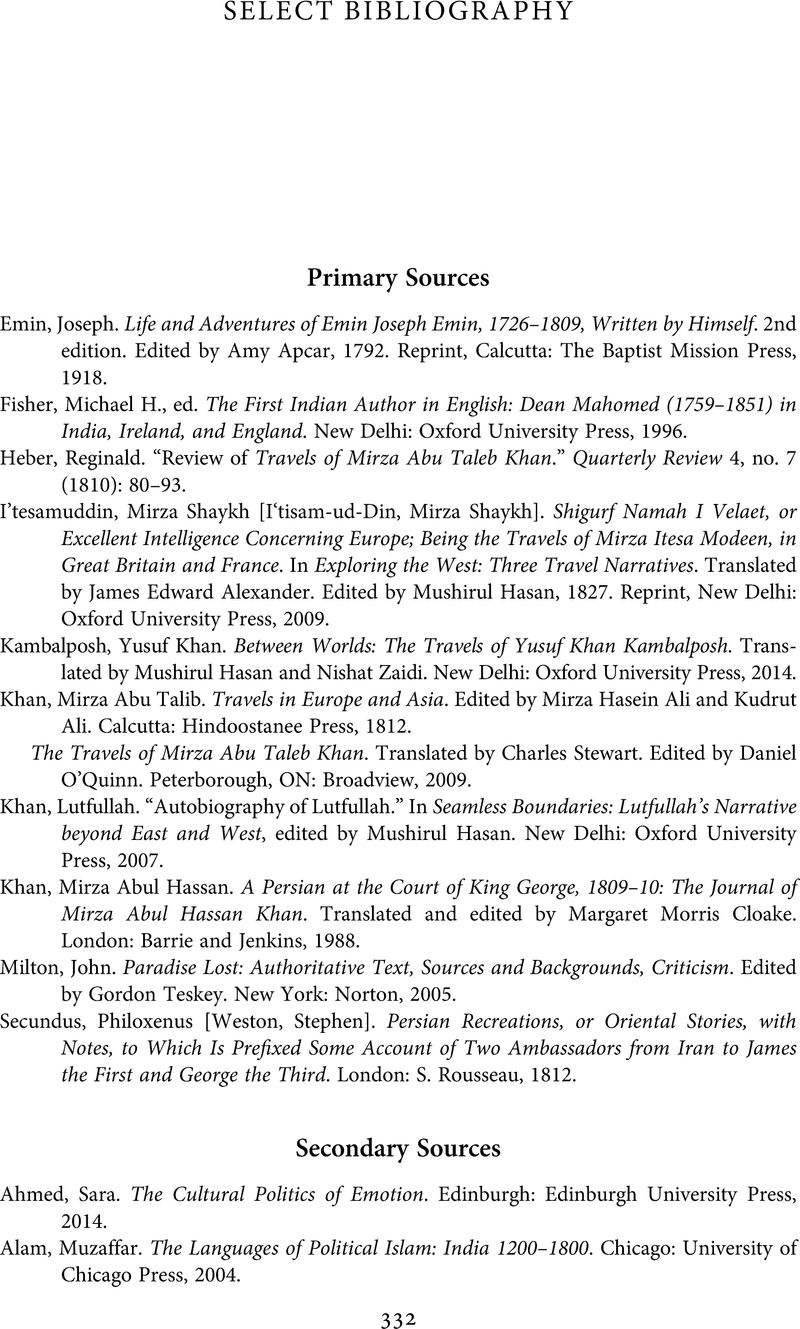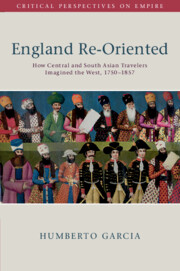Book contents
- England Re-Oriented
- Critical Perspectives on Empire
- England Re-Oriented
- Copyright page
- Dedication
- Epigraph
- Contents
- Figures
- Acknowledgments
- Note on Transliteration
- Introduction
- 1 The British Raj’s Mimic Men
- 2 A Bluestocking Romance
- 3 The Theater of Imperial Sovereignty
- 4 Loving Strangers in Ireland
- 5 Heavenly Bodies in Motion
- 6 Dreaming with Fairyland
- 7 The Making of a Mohamedan Gentleman
- Epilogue
- Book part
- Select Bibliography
- Index
- References
Select Bibliography
Published online by Cambridge University Press: 06 November 2020
- England Re-Oriented
- Critical Perspectives on Empire
- England Re-Oriented
- Copyright page
- Dedication
- Epigraph
- Contents
- Figures
- Acknowledgments
- Note on Transliteration
- Introduction
- 1 The British Raj’s Mimic Men
- 2 A Bluestocking Romance
- 3 The Theater of Imperial Sovereignty
- 4 Loving Strangers in Ireland
- 5 Heavenly Bodies in Motion
- 6 Dreaming with Fairyland
- 7 The Making of a Mohamedan Gentleman
- Epilogue
- Book part
- Select Bibliography
- Index
- References
Summary

- Type
- Chapter
- Information
- England Re-OrientedHow Central and South Asian Travelers Imagined the West, 1750–1857, pp. 332 - 336Publisher: Cambridge University PressPrint publication year: 2020

